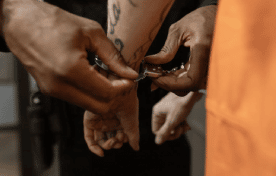When an individual is arrested and charged with a crime, they will be given a bail hearing. Bail is essentially a way for the court to ensure that the accused individual will return for their trial. The bail amount is set by the judge and is based on the severity of the crime, the accused individual’s criminal history, and whether or not they are considered a flight risk. Here’s a look at how bail bonds work and how they can be used to get an individual out of jail.
1. Bail is set by a judge during a bail hearing
Bail is set by a judge during a bail hearing. This hearing is held soon after the arrest and is meant to determine if the accused individual should be released on bail, and if so, how much the bail should be. The judge will consider the severity of the crime, the accused individual’s criminal history, and whether or not they are considered a flight risk. For example, the Hawaiian Islands Bail Bonds notes that a first-time offender charged with a non-violent crime is likely to have a bail set at $500 or less, while someone with a violent criminal history may have a bail set at $5,000 or more. It’s important to note that bail is not meant to be punishment, but rather a way to ensure that the accused individual will return for their trial.
2. The accused individual or their loved ones can post bail at the police station or courthouse
This is typically done in cash, although some court systems may allow for a bail bond. Bail bonds are insurance policies that pay the full bail amount if the accused individual fails to appear for their scheduled court appearance. Also, some court systems may require that the bail be posted in person, while others may allow for it to be posted online. It’s important to check with the court system in which the bail is being posted to find out their specific requirements.
3. Once bail is posted, the accused individual will be released from jail
Assuming all goes well and the bail is posted without any problems, the accused individual will be released from jail. They will be given a date to appear in court and will be required to adhere to any conditions of release that have been set by the court. Additionally, it’s important to note that the bail money will be refunded to the person who posted it once the case has been resolved.
4. If the accused individual fails to appear for their court date, they will forfeit their bail
If the accused individual fails to appear for their scheduled court appearance, they will forfeit their bail. This means that the bail money will not be refunded and a warrant will likely be issued for their arrest. Additionally, if the individual had posted a bail bond, the insurance company that issued the bond will likely hire a bounty hunter to track down and arrest the individual. As you can see, it’s important to make sure that you or your loved one appears for their court date if they have been released on bail.
5. Bail can be paid in cash, by check, or with a bail bond
As we mentioned above, bail can typically be paid in cash, by check, or with a bail bond. Bail bonds are insurance policies that pay the full bail amount if the accused individual fails to appear for their scheduled court appearance. If you’re posting bail for someone, it’s important to check with the court system to find out their specific requirements and what forms of payment they accept.
6. Bail is refunded once the case is resolved
Once the case has been resolved, the bail money will be refunded to the person who posted it. If the accused individual is found guilty, the bail money will be used to pay any fines that have been imposed. If the accused individual is found not guilty, the bail money will be returned in full. It’s important to note that bail is not meant to be punishment, but rather a way to ensure that the accused individual will return for their trial.

Now that you have a better understanding of how bail bonds work, you can see why they may be a good option for you or your loved one if you find yourself in need of one. If you are ever in need of a bail bond, remember to contact a licensed bail agent who can help you through the process and get you or your loved one released from jail as soon as possible.




